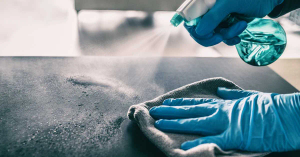Want to build muscle like your favorite athletes? Or maybe you’ve seen influencers promoting protein shakes as the secret to getting strong fast? If you’re a teen thinking about adding protein supplements to your diet, hold on!
While protein is important for muscle growth, too much can actually harm your body. Some protein powders and shakes may contain hidden dangers that can affect your kidneys, liver, and even hormones. So, before you grab that tub of protein powder, let’s uncover the hidden risks and find out the best ways to fuel your body safely.
Why Do Teens Use Protein Supplements?
Many teenagers believe protein supplements can help with:
Faster muscle growth
- Better sports performance
- Weight loss or gain
- Quick meal replacements
But here’s the deal: most teens don’t need extra protein from supplements! Your body already gets what it needs from food, and overloading on protein powders might do more harm than good.
Hidden Risks of Protein Supplements for Teens
1. Kidney Damage from Too Much Protein
Your kidneys filter waste from your body, and when you eat too much protein, they have to work extra hard. Over time, this can lead to kidney stones, dehydration, and even kidney damage. Teens with a family history of kidney disease should be extra careful.
2. Unregulated and Harmful Ingredients
Protein powders aren’t checked as strictly as medicines. Some may contain steroids, heavy metals (like lead and mercury), or other harmful chemicals that can damage your organs. You might think you’re getting a healthy shake, but you could actually be drinking toxins!
3. Digestive Issues and Bloating
Many protein supplements contain lactose (found in milk), which can cause bloating, gas, and stomach pain, especially if you’re lactose intolerant. Some also contain artificial sweeteners that can lead to diarrhea and nausea.
4. Hormonal Imbalance and Acne
Some protein supplements contain added hormones and synthetic ingredients that can interfere with your body’s natural growth and puberty. This can lead to mood swings, breakouts, and even changes in your menstrual cycle (for girls).
5. Unhealthy Weight Gain
Many protein shakes are high in sugar and calories. Instead of helping you gain lean muscle, they might actually cause unwanted fat gain and increase the risk of diabetes later in life.
6. Liver Damage and Toxin Build-Up
Your liver helps break down protein, but when it gets too much, it can lead to toxin build-up, fatigue, and skin problems. This is especially dangerous if you’re taking protein powders with unknown ingredients.
Who Can Take Protein Supplements?
Some teens may need extra protein, but only under the right conditions:
- Athletes and Highly Active Teens – If you’re training for hours in sports like swimming, football, or weightlifting, your body may need extra protein. But always consult a coach or doctor first!
- Teens with Medical Conditions – If a doctor recommends it due to malnutrition, protein deficiency, or a special diet (like veganism).
- Underweight Teens – If you’re struggling to gain weight due to a fast metabolism or health issues, a **nutritionist may suggest protein supplements.








